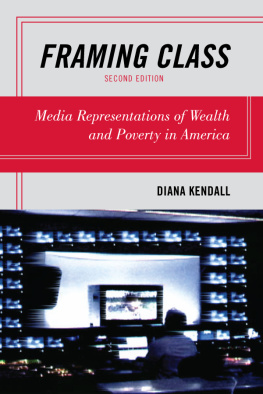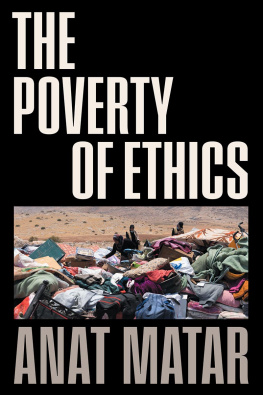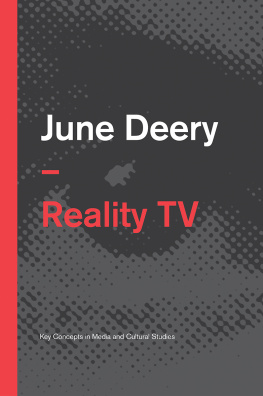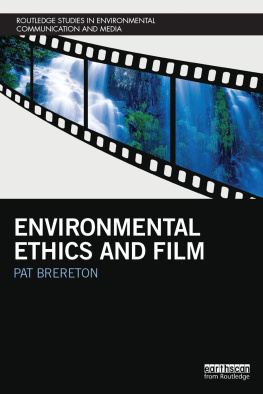
The Poverty of Television
ANTHEM GLOBAL MEDIA AND COMMUNICATION STUDIES
Anthem Global Media and Communication Studies aims to advance the understandings of the continuously changing global media and communication environment. The series publishes critical scholarly studies and high-quality edited volumes on key issues and debates in the field (as well as the occasional trade book and the more practical how-to guide) on all aspects of media, culture and communication studies. We invite work that examines not only recent phenomena in this field but also studies which theorize the continuities between different technologies, topics, eras and methodologies. Saliently, building on the interdisciplinary strengths of this field, we particularly welcome cutting edge research in and at the intersection of communication and media studies, anthropology, cultural studies, sociology, telecommunications, public policy, migration and diasporic studies, gender studies, transnational politics and international relations.
Series Editors
Shakuntala Banaji London School of Economics and Political Science (LSE), UK Terhi Rantanen London School of Economics and Political Science (LSE), UK
Editorial Board
Aaron Barlow New York City College of Technology, USA
Martin Barker Aberystwyth University, UK
David Buckingham Loughborough University, UK
John Downey Loughborough University, UK
Jacqui Ewart Griffith University, Australia
Bob Franklin Cardiff University, UK
Christian Fuchs Uppsala University, Sweden
Radhika Gajjala Bowling Green State University, USA
Fadi Hirzalla University of Amsterdam, Netherlands
Koichi Iwabuchi Monash University, Australia
Jack Lule Lehigh University, USA
Karen Lury University of Glasgow, UK
Mary Celeste Kearney University of Texas at Austin, USA
Linje Manyozo London School of Economics and Political Science (LSE), UK
Dina Matar School of Oriental and African Studies (SOAS), UK
Purnima Mankekar University of California, Los Angeles (UCLA), USA
Donald Matheson University of Canterbury, New Zealand
Britta Ohm University of Bern, Switzerland
Rita Rahoi-Gilchrest Winona University, USA
Arvind Rajagopal New York University, USA
Erik Ringmar Shanghai Jiaotong University, China
Thomas Tufte Roskilde University, Denmark
Silvio Waisbord George Washington University, USA
The Poverty of Television
The Mediation of Suffering
in Class-Divided Philippines
Jonathan Corpus Ong
Anthem Press
An imprint of Wimbledon Publishing Company
www.anthempress.com
This edition first published in UK and USA 2015
by ANTHEM PRESS
7576 Blackfriars Road, London SE1 8HA, UK
or PO Box 9779, London SW19 7ZG, UK
and
244 Madison Ave #116, New York, NY 10016, USA
Copyright Jonathan Corpus Ong 2015
The author asserts the moral right to be identified as the author of this work.
All rights reserved. Without limiting the rights under copyright reserved above, no part of this publication may be reproduced, stored or introduced into a retrieval system, or transmitted, in any form or by any means (electronic, mechanical, photocopying, recording or otherwise), without the prior written permission of both the copyright owner and the above publisher of this book.
British Library Cataloguing-in-Publication Data A catalogue record for this book is available from the British Library.
Library of Congress Cataloging-in-Publication Data
Ong, Jonathan Corpus.
The poverty of television : the mediation of suffering in class-divided Philippines/
Jonathan Corpus Ong.
pages cm. (Anthem global media and communication studies)
Includes bibliographical references.
ISBN 978-1-78308-406-7 (hard back : alk. paper)
1. Television viewersPhilippinesAttitudes. 2. Television programsSocial aspects
Philippines. 3. Suffering on television. 4. TelevisionPsychological aspectsPhilippines.
I. Title.
PN1992.3.P5O54 2015
302.234509599dc23
2015004782
ISBN-13 978 1 78308 406 7 (Hbk)
ISBN-10 1 78308 406 5 (Hbk)
LIST OF FIGURES AND TABLES
ACKNOWLEDGEMENTS
The idea behind this book began during my MSc degree at the LSE, where I studied under the most passionate professors thinking through pressing questions about media morality. Sonia Livingstone, Youna Kim and Terhi Rantanen were among my encouraging mentors. I have to specially thank Shani Orgad, whose lectures seduced me into academia, and introduced me to my eventual PhD supervisor.
This book would not have been possible without Mirca Madianou. Mirca guided me for four years as my supervisor at the University of Cambridge. While Cambridge was an odd place to study television and popular culture (not to mention suffering), Mircas intellectual navigation and fierce friendship found me a home and shaped my voice as a writer. She continues to teach me to this day now as colleagues in the Humanitarian Technologies Project and by being her own example of humility and empathy as first principles of research.
Many ideas in the dissertation are the product of discussions with generous and critical mentors. I am deeply thankful to Lilie Chouliarakifirst, for inspiring me through her lyrical and imaginative writing, and then for always challenging me to write and do better. Danny Miller visited Manila during my fieldwork taught me to be less cautious and think/live more dangerously. Georgina Borns suggestions at a crucial stage of my project informed its eventual focus. Nick Couldry gave terrific advice during my PhD examination.
During fieldwork, I am thankful for the hospitality extended by ABS-CBN and GMA. Had it not been for materials and insights shared by Tina Monzon-Palma, Lita Montifar, Cookie Bartolome, Ryan Chua, Ayee Macaraig, Mel Tiangco, Jobart Bartolome, Ella Evangelista-Martelino, Angeli Atienza, Cel Amores, and Regie Bautista, important characters and subplots would have gone missing from the story. Melo Esguerra, Bryant Macale, Bea Ledesma, and Roland Tolentino clarified many important points about the Philippine media landscape.
For 16 years now, Jason Cabanes has been like a brother to me. Thank you for always getting me on the comeback trail. I would never have considered getting a PhD without Nicole Curatos encouragementwhat Nicole says or subtly implies, we should always do. violet valdez is my first and remains the staunchest academic mentor. I am very lucky to have a most intuitive lay expert friend in Deepa Paul-Plazo, whose proofread was loving, meticulous, and challenging. Pamela Combinido helped and cheered me through the final stages of manuscript preparation. I am grateful for conversations with peers about my work: Megha Amrith, Kristel Acedera, Jayeel Cornelio, Leloy Claudio, Ranjana Das, Helena Patzer, Guanming Low, Lawrence Santiago, Dominic Yeo, Ozan Asik, and Casey Brienza.
My editors and publisher at Anthem Press have been most patient with me through this process. I am thankful to Tej Sood, Brian Stone, and Lori Martinsek for their support. Mano Gonzales boundless talent and Raymond Angs visual literacy are to thank for the book cover.
I am also in debt to all my students in Leicester, Hong Kong, Cambridge, and Ateneo de Manila who engaged all my examples on suffering and media ethics, and were first to hear and challenge my ideas.
My deepest love and affection go out to my family: my mother Susan, my brother Jeri, and my Ate Liza. My moms love makes me who I am. It is from her that I first learned the lay moralities of resilience and dignity. My father Antonio and grandmother Lourdes were excited and anxious when I began my PhD; unfortunately they did not live to see me finish it. I dedicate this book to them.







